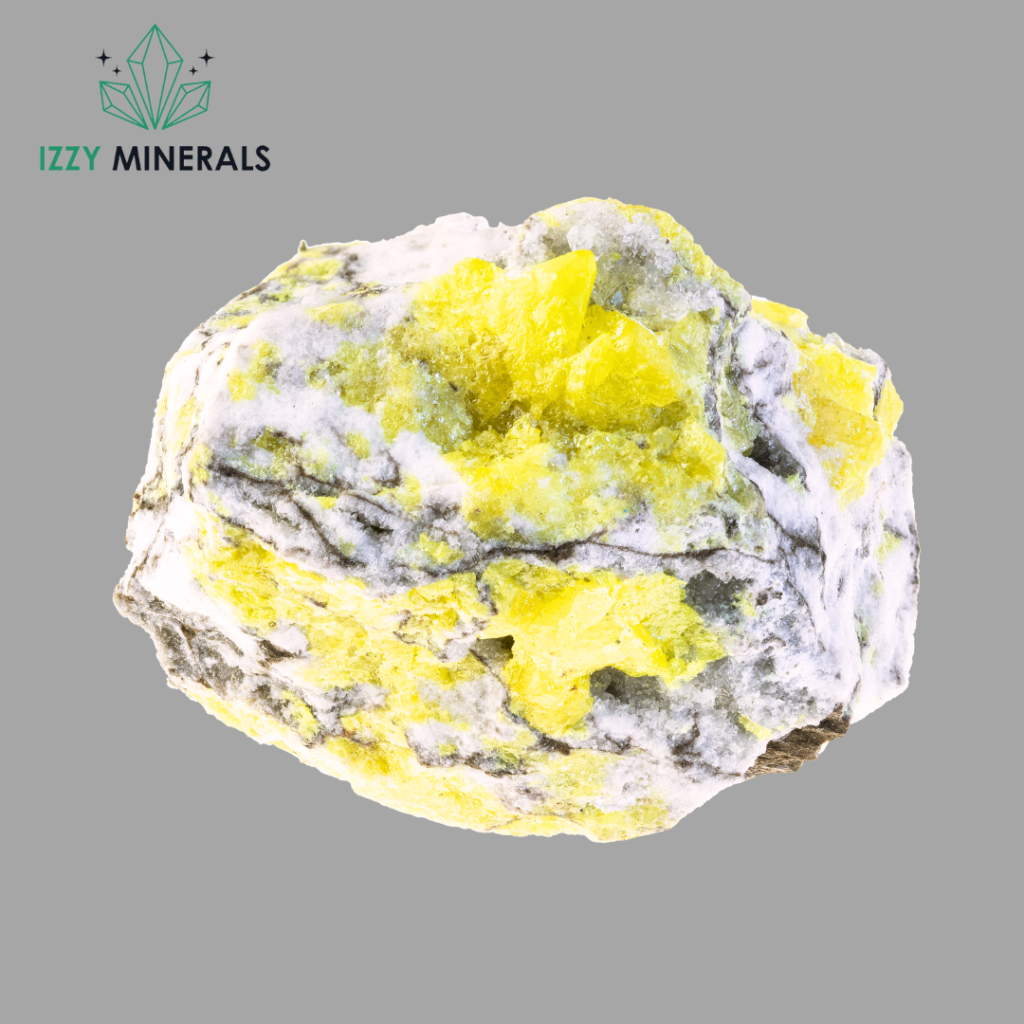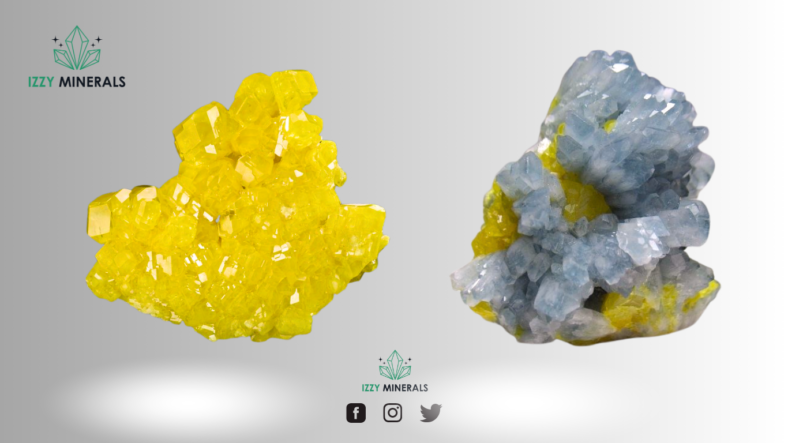Minerals are the building blocks of our planet, forming the bedrock of geology and shaping landscapes. But what about sulfur? Is it a bona fide mineral or an imposter lurking in the mineralogical shadows? In this blog post, we delve into the elemental world of sulfur, exploring its characteristics, debating its mineral status, and ultimately classifying its place in the mineral kingdom.
Characteristics of Minerals

Before we embark on our sulfuric journey, let’s recap what makes a substance a mineral:
Naturally Occurring: Minerals arise naturally, not as human-made creations.
Inorganic: They lack organic components—no carbon-based molecules here!
Solid: Minerals exist in a solid state at room temperature.
Definite Chemical Composition: Each mineral has a specific chemical formula.
Ordered Atomic Arrangement: Their atoms arrange themselves in a predictable pattern.
Sulfur: Mineral or Not
Arguments for Sulfur as a Mineral
Native Element: Sulfur occurs as a native element, especially near volcanic vents and fumaroles. These yellow crystalline deposits emerge from hot gases, creating a striking contrast against the volcanic backdrop.
Essential to Life: Sulfur is a vital component of all living organisms. It weaves its way into organic molecules, fuels metabolic processes, and even contributes to the pungent aroma of garlic and rotten eggs.
Arguments against Sulfur as a Mineral
Chemical Versatility: Sulfur readily forms compounds with other elements, blurring the line between pure mineral and compound. Its flirtation with oxygen, hydrogen, and other companions complicates its mineral status.
Rarely Pure: Elemental sulfur rarely exists uncombined at Earth’s surface. Instead, it partners with sulfate and sulfide minerals, playing a supporting role
rather than taking center stage.
Discussion on Classification
Sulfur dances on the mineralogical tightrope. While it exhibits mineral-like qualities, its penchant for bonding with others keeps us guessing. Perhaps we should consider it a “mineral adjacent”—a unique case that defies easy categorization.
FAQs
Is sulfur flammable?
Yes! Sulfur burns with a blue flame, a fact that might surprise you during your next campfire.
Why does sulfur smell so strong?
Blame sulfur compounds—the culprits behind the stench of skunks, garlic, and rotten eggs.
Can sulfur be found in space?
Absolutely! It’s abundant throughout the Universe, making cosmic chemistry a little more sulfurous.
Conclusion
In the grand mineral symphony, sulfur plays a distinctive note. Whether we label it a mineral or not, its presence in volcanic landscapes, living organisms, and industrial processes cannot be ignored. So, let’s raise our metaphorical geologist’s pick and celebrate sulfur—the enigmatic element that keeps us guessing.

